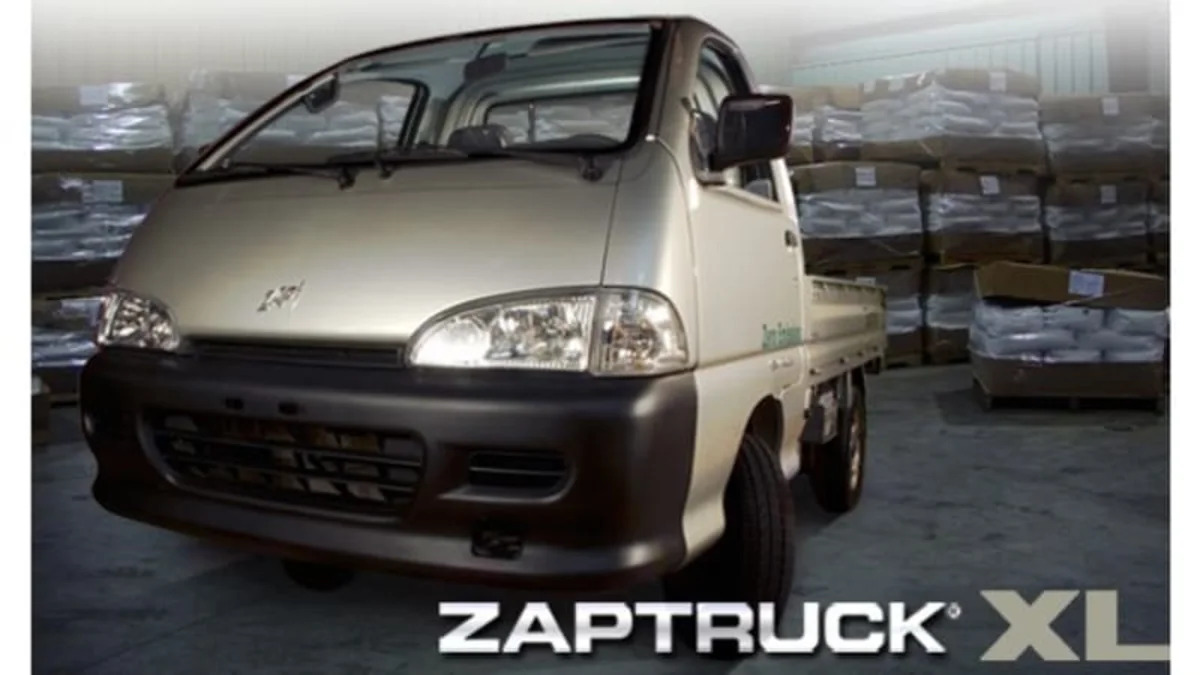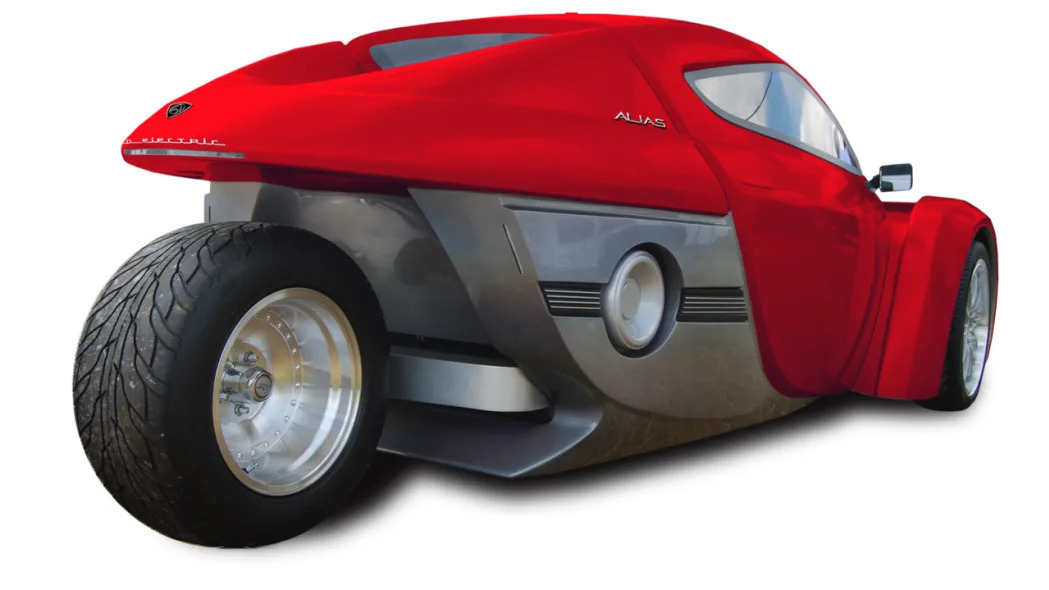In addition to the planned Alias from ZAP, the electric vehicle company reportedly wants to branch into the electric pickup truck market as well. According to the latest in a long line of press releases from ZAP, the company has completed the engineering stage of a project to develop a four-wheel electric pickup. The company claims it plans to build the new EV right here in the United States using parts and components largely sourced from U.S. suppliers.
We surmise that the electric truck would be built alongside the Alias at the delayed ZAP Motor Manufacturing Kentucky plant in Franklin, Kentucky. To make this goal a reality, ZAP has reportedly applied for a $160 million loan from the U.S. Department of Energy's Advanced Technology Vehicles Manufacturing (ATVM) program. We're not sure if this would be the Zap Truck that's featured on the company's website or something new. Check out the press release after the jump.
We surmise that the electric truck would be built alongside the Alias at the delayed ZAP Motor Manufacturing Kentucky plant in Franklin, Kentucky. To make this goal a reality, ZAP has reportedly applied for a $160 million loan from the U.S. Department of Energy's Advanced Technology Vehicles Manufacturing (ATVM) program. We're not sure if this would be the Zap Truck that's featured on the company's website or something new. Check out the press release after the jump.
[Source: ZAP]
PRESS RELEASE:
ZAP Completes Made in USA Electric Pickup Engineering Project
SANTA ROSA, CA -- Electric vehicle pioneer ZAP (OTCBB: ZAAP) has completed an engineering project to develop a four-wheel electric pickup with the majority of the parts and components supplied by US companies. This initiative is in line with the company's ongoing efforts to restructure its operations to focus on US production, particularly in the electric truck arena, as well as in the recent announcement regarding the American manufacture of the ZAP Alias model.
ZAP is uniquely positioned to see its corporate ethos dovetail with government policy. The March announcement of $2.4 billion in federal stimulus funds specifically earmarked for the creation of next generation, plug-in hybrid electric vehicles and advanced battery components, coupled with the Obama Administration's commitment to domestic job creation and "green" economic development, promise to place renewed emphasis on the purchase of alternative fuel vehicles manufactured and built in the United States.
"Although the larger automakers are looking into electric vehicles and have even published release dates, ZAP is one of the only companies that has experience building low-cost fleet vehicles," said ZAP CEO Steve Schneider. "We are assembling a roster of suppliers that can enable ZAP to grow in the future, including one partner that builds more than four hundred thousand vehicles per year. Through our affiliate partner, ZAP Motor Manufacturing Kentucky, we hope to have a USA base that can build large quantities of 'Made in USA' vehicles for fleet and consumer applications."
Earlier this year, ZAP Motor Manufacturing Kentucky (ZMMK), based in Franklin, Kentucky, applied to the Department of Energy for a $160 million loan application. The DOE has made $25 billion in loans available to qualified carmakers and suppliers building advanced technology vehicles in the US. ZMMK President Gary Dodd expects to build the vehicles in Kentucky pending funding from the DOE.
"I'm looking forward to applying my experience from the auto industry on this project," said Dodd, who worked as a general manager for the Toyota plant in Georgetown, Kentucky for 12 years until 1998, then started his own business building plants for Toyota and other automakers.
About ZAP
ZAP has been a leader in electric transportation since 1994, delivering over one hundred thousand vehicles to consumers in more than seventy-five countries. ZAP manufactures a line of electric vehicles, including electric city-cars and trucks, motorcycles, scooters, bicycles, and ATVs. ZAP sells some of the only electric city-speed cars, trucks and vans in production today and is developing a freeway capable electric vehicle called the ZAP Alias. For product, dealer and investor information, visit http://www.zapworld.com.
Forward-Looking Statement
This press release contains forward-looking statements. Investors are cautioned that such forward-looking statements involve risks and uncertainties, including, without limitation, continued acceptance of the Company's products, increased levels of competition for the Company, new products and technological changes, the Company's dependence upon third-party suppliers, intellectual property rights, and other risks detailed from time to time in the Company's periodic reports filed with the Securities and Exchange Commission.



Sign in to post
Please sign in to leave a comment.
Continue